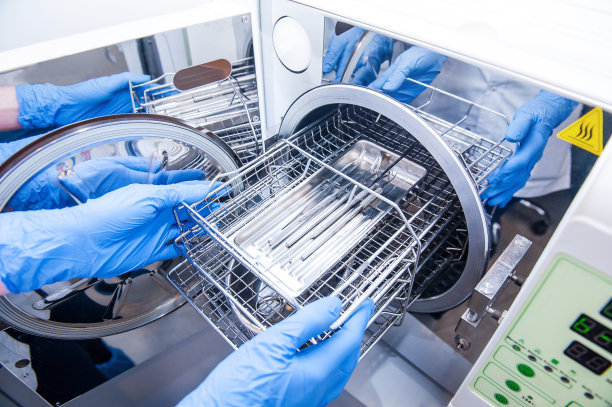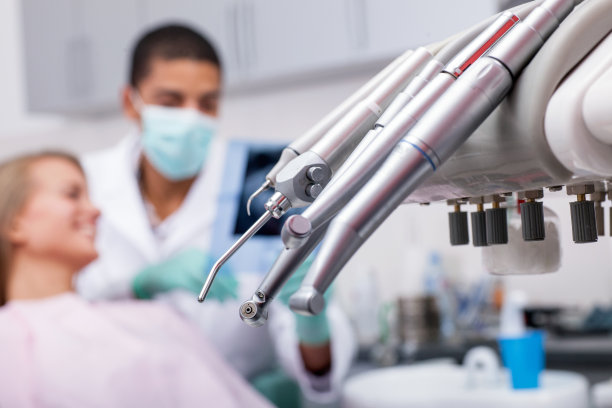Summary: Dental fillings are essential procedures for restoring teeth affected by decay or damage. However, to ensure optimal oral health and a smooth recovery, it is crucial to take specific precautions both before and after the procedure. This article will explore four important aspects to consider: pre-procedure preparations, post-procedure care, dietary restrictions, and ongoing oral hygiene practices. By adhering to these guidelines, patients can enhance their overall dental experience and safeguard their teeth for the future.
1. Pre-Procedure Preparations Are Crucial

Before undergoing a dental filling, it is important to prepare adequately. One of the first steps is to discuss any health concerns with your dentist, as certain medical conditions or medications may affect the procedure. For instance, informing your dentist about allergies or blood thinners can help them tailor your treatment plan to ensure your safety.
Additionally, ensuring that you have adequate time set aside for the appointment can reduce anxiety. Rushing can lead to oversight and discomfort. You should plan for a brief period of recovery, especially if using sedation. Hence, freeing up your schedule on the day of the appointment is advisable.
Finally, consider arranging for someone to drive you home if sedation methods will be used. This precaution can greatly enhance your peace of mind, knowing that you won’t need to navigate your journey back home alone.
2. Post-Procedure Care to Promote Healing
After receiving a dental filling, proper post-care is essential for allowing the area to heal effectively. Initially, avoid applying pressure to the filled tooth until the numbness from any anesthesia has completely worn off. This helps prevent accidental biting of the cheek or tongue, which can lead to additional injuries.
Pain management is another important aspect of post-procedure care. Over-the-counter pain relief medications are often sufficient for managing discomfort. However, if pain persists or worsens, it is vital to reach out to your dentist to evaluate the situation.
Lastly, monitoring your dental filling for any changes is key to successful recovery. If you notice any jagged edges, loosening, or if you experience unusual sensations, contact your dental office promptly. These indicators may suggest the need for further attention to maintain both the filling and your overall dental health.
3. Understand Dietary Restrictions for Recovery
Dietary choices play a significant role in the healing process after dental fillings. Immediately following the procedure, it is advisable to consume soft foods and avoid hot or cold items that may cause discomfort. Options such as yogurt, mashed potatoes, and smoothies can provide necessary nutrition without risking complications.
Nevertheless, not only does the immediate post-filling diet matter, but you should also refrain from sticky or hard foods that could dislodge or damage the filling in the subsequent days. Foods like nuts or chewy candies can pose risks to the integrity of both the filling and the surrounding teeth.
As you progress in your recovery, slowly reintroducing a variety of foods while being cautious will help maintain your oral health. However, retaining a balanced diet will support overall health and recovery during this crucial healing period.
4. Ongoing Oral Hygiene Practices to Maintain Health
Maintaining rigorous oral hygiene practices is paramount after a dental filling. Regular brushing and flossing should continue as part of your daily routine, but be cautious around the treated area initially. Using a soft-bristled toothbrush can help protect sensitive teeth while ensuring effective cleaning.
Additionally, it may be beneficial to use an antibacterial mouth rinse to help reduce bacteria in the mouth, promoting healing and reducing the risk of potential infection in the filling. Such rinses may offer benefits especially in the days following your procedure.
Finally, do not overlook the importance of scheduling follow-up appointments with your dentist for routine check-ups. These visits can help monitor the condition of your filling and overall dental health, fostering a proactive approach to your oral wellness.
Summary:
In conclusion, taking adequate precautions before and after a dental filling procedure can significantly enhance recovery and maintain optimal oral health. Pre-procedure preparations should encompass sharing health information and scheduling effectively, while post-care involves managing pain and monitoring the filling condition. Dietary restrictions and ongoing hygiene practices are equally crucial to support recovery and prolong the life of the dental work.
This article is compiled by Vickong Dental and the content is for reference only.
Vickong Dental
Vickong Dental is a large medical group established in Hong Kong in 2008 by professors from well-known medical universities in Guangdong and Hong Kong, as well as medical doctors from key national '985' universities (including Master's supervisors and senior professors). The chain of branches brings together expert dentists with PhDs and Master's degrees from Hong Kong and Mainland China, committed to providing high-quality dental treatment.
"Vickong Dental Practices the University Motto of 'Healing and Serving Society,' with a Stable Operation for Sixteen Years. It Has Been honored with Hong Kong Enterprise Leaders's Choice,' and is a Global Trusted Implant Center for the Nobel Implant System. Recommended by Hong Kong Metro Broadcast and Guangdong Television, it Serves Customers from Over Thirty Countries and Regions, Gaining the Trust and Favor of Citizens from the Guangdong-Hong Kong-Macau Greater Bay Area and Surrounding Cities.

Thousands of customers' unanimous praise
The most recognized and highly recommended dental service by customers in the Guangdong-Hong Kong-Macau Greater Bay Area
We Ensure You Receive Detailed Care and Attention Here
Hong Kong standards, Shenzhen prices, Your Trusted English-speaking dentists

Vickong Dental Medical-Grade Instrument Disinfection Process
Vickong Dental Medical-Grade Instrument Disinfection Process

Vickong Dental Chain: A Warm and Comfortable Environment for Treatment






Appointment Hours

Q&A
Why choose Vickong Dental?
Vickong Dental practices the university motto 「Medicine to Benefit Society」, with each branch bringing together highly qualified dentists with doctoral and master’s degrees from Hong Kong and the Mainland, and has maintained seventeen years of steady operation。Recipient of 「2024 Hong Kong Enterprise Leaders Brand」, 「2025 Hong Kong Enterprise Leaders Brand」, a Nobel Biocare Global Trusted Implant Center, and a brand recommended by Metro Radio Hong Kong and Guangdong TV。
To date, we have served customers from more than thirty countries and regions,earning exceptionally high word-of-mouth recognition and trusted recommendations from residents across the Guangdong-Hong Kong-Macao Greater Bay Area and surrounding cities
We have eight major branches in Zhuhai、Shenzhen,and a consultation and service assurance center in Hong Kong,so you can book a free consultation at any time for any questions,which is very reassuring.
If I do not accept the quotation after the CT scan, will I be charged??
No! As long as the actual treatment has not started, you will not be charged any fees.
Will there be any additional charges during the treatment process?
No, there won’t be any additional charges. Before treatment begins, we will clearly explain the treatment plan and its corresponding fees. Only after the patient agrees and signs the consent form will we proceed with the dental service.
Can I pay in Hong Kong dollars?
Yes. Vickong Dental accepts payment in Hong Kong dollars. The amount will be converted based on the exchange rate of the day, and the applicable rate will be clearly communicated to you in advance.
Can I reschedule my appointment at any time?
Yes. Please contact us via **WeChat** or **WhatsApp** as early as possible, providing your original appointment time and details, along with your preferred new date and time slot for rescheduling.













